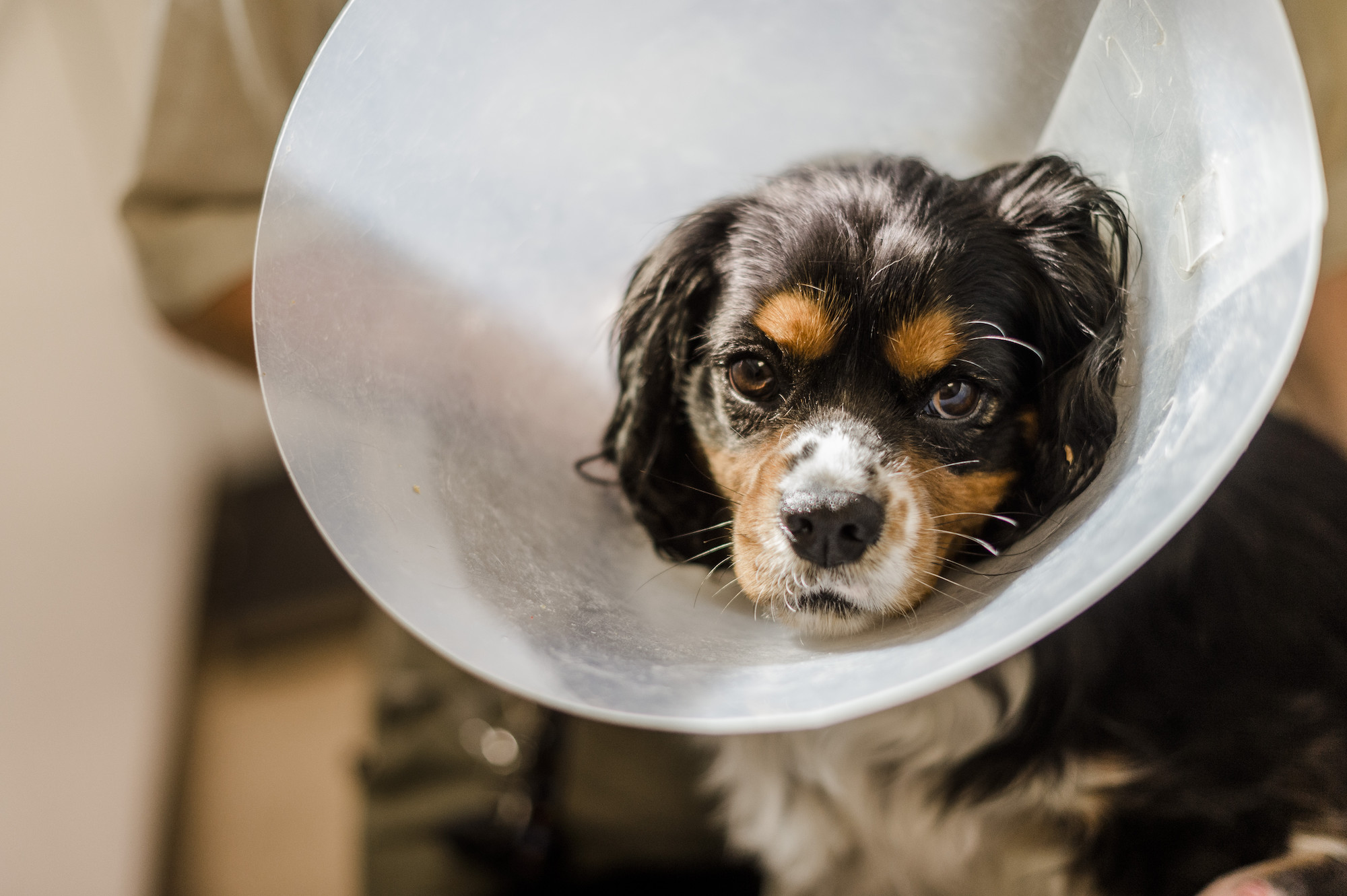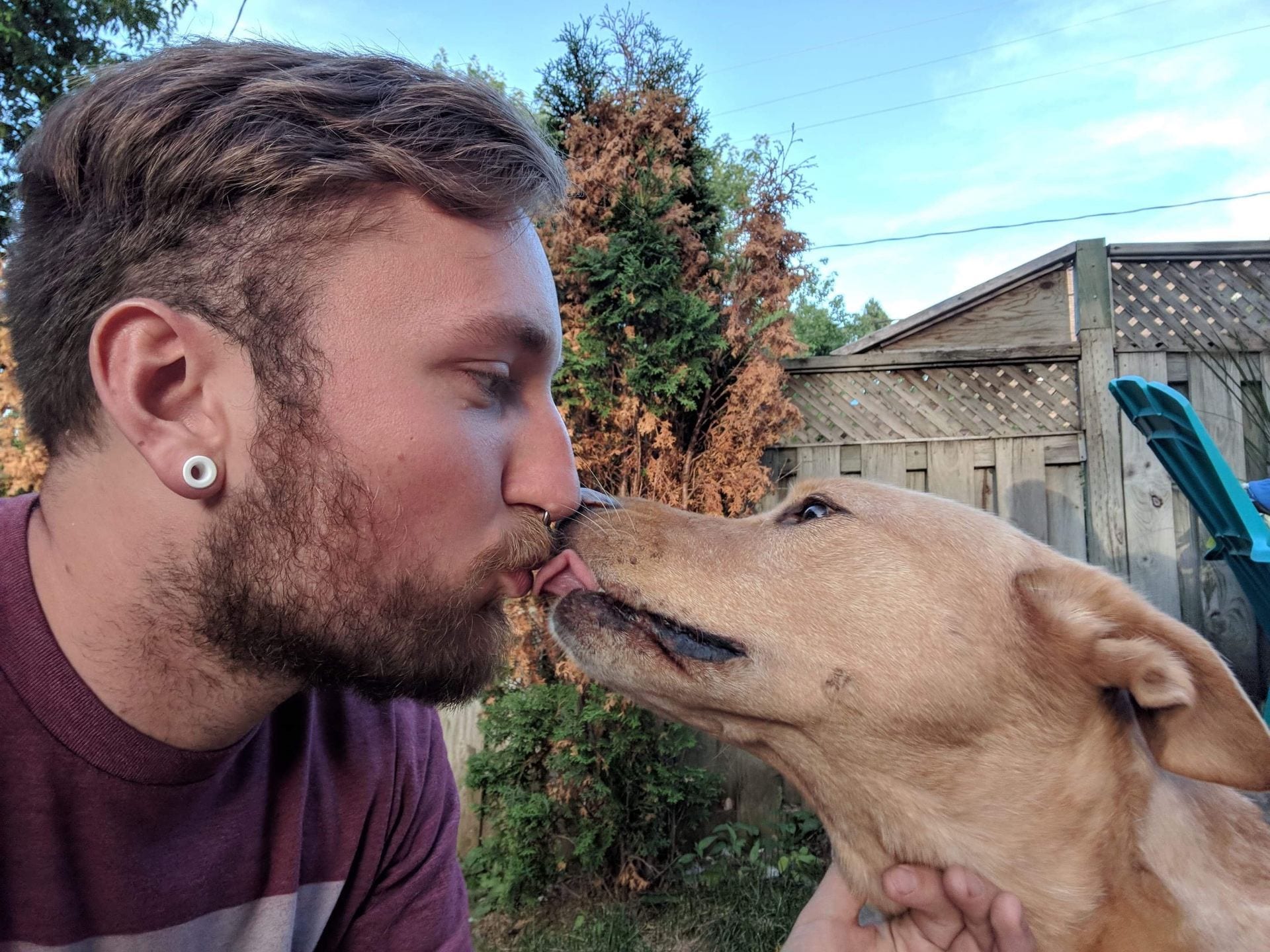
Many dogs will require a protective collar see handout Elizabethan Collars in Dogs for more information to prevent them from injuring the site. As long as there is no open wound present there should not be any issue with the area since the.

Evidence Against the Health Claim Despite the antibacterial agents found in saliva many scientists caution against wound licking arguing that such practice is neither safe nor health-promoting.
Is it okay to let a dog lick its wounds. Is it a good idea to lick your wounds. Evidence Against the Health Claim Despite the antibacterial agents found in saliva many scientists caution against wound licking arguing that such practice is neither safe nor health-promoting. Can dogs smell period.
You might not have known it before but lots of animals are able to detect when your hormones are changing or balancing out. While wound licking is often completely condemned by vets and at the same time almost ritualized by many natural healers there is no simple answer to the question Is wound licking in dogs good or bad Why Dogs Lick Their Wounds. It is not only do dogs have a natural instinct to immediately lick any wound inflicted on them.
Humans too have a reflex to lick or suck on any cuts they suffer think about the. Dogs and cats lick their wounds. Because they have no disinfectant handy with which to clean their own cuts and scrapes.
Last reviewed on January 22 2016. Indeed they seem to manage quite well when it comes to simple cleaning. But beyond getting the big bits of dirt and basic grunge off their tongues are infinitely better off where they belong.
I think the best course of action is to use the same judgement that you would when dealing with a child. If the wound is small and fresh an everyday sort of wound that you know how they came by that is neither deep nor long the kind that will o. But when dogs and cats are truly injured allowing them to lick their wounds can do more harm than good.
Like most animal activities wound licking has its roots in behavior that would be beneficial under different circumstances. When a wild animal licks its wounds it is making the best of a bad situation. With no access to veterinary care the individual uses its tongue to remove dirt and debris from the area.
Saliva can also have a negative effect on the growth of bacteria so licking. The plastic cone also called an Elizabethan collar is the traditional method for keeping a dog from licking a wound. This is typically the initial protection your veterinarian will provide.
Transparent cones tend to be less scary for the dog than the opaque ones because the dog. Yes you should let your dog lick his wounds unless he is licking exessively. Dogs have an enzyme that speeds up the healing process.
Dogs have an enzyme that speeds up the healing process. I thought an e-collar was a big plastic gaurd around the dogs head to prevent them from being able to reach stitches on their belly etc. Typically sutures are only removed when the site is completely healed.
As long as there is no open wound present there should not be any issue with the area since the. Although there are a lot of risks associated with letting dogs lick wounds canine saliva does contain a few compounds that may help to disinfect and clean wounds. The practice of allowing dogs to heal wounds with licking dates back as far as the Egyptian age where dogs were allowed to lick the open wounds of humans in the belief that their saliva could heal.
For dogs licking wounds is like you rubbing your head if you hit it. The nerves used to transmit the rubbing sensation block the feeling of pain or soreness. And canine saliva does have some mild antibacterial effect.
For wild or feral dogs licking is probably beneficial in cleaning a wound. Should I Let My Dog Lick His Wound. Licking might offer some protection against certain bacteria but there are serious drawbacks to letting your dog lick wounds.
Excessive licking can lead to irritation paving the way for hot spots infections and potential self-mutilation. Licking and chewing can also slow healing by reopening wounds. Your dog should not be allowed to lick or chew the open wound.
Many dogs will require a protective collar see handout Elizabethan Collars in Dogs for more information to prevent them from injuring the site. It is important to prevent the skin from healing over the wound too quickly. Depending on the wound your dogs licking can be positive or negative.
Canine saliva can be helpful in cleaning your wound and even healing it. It is said that their saliva may have antimicrobial and healing properties. Yet it may be important to not let.
Dogs will naturally lick any wound on their bodies they can reach with their tongues as its just instinct for them to do so. Because this is such common behavior many people believe that when a dog licks a wound it will promote healing. There is some evidence that dog saliva has some antibacterial plus the rough surface of a dogs tongue can loosen dirt which may have gotten into the wound.
MRSA infection in humans which produce lesions like the unsightly one above can be caused by as little as one lick from your dog. Dogs can carry around this bacteria with very little effect on their own health but when an owner comes into contact with it Yeah its a bad time. Allowing pet cats to lick open wounds can cause cellulitis and sepsis due to bacterial infections.
Licking of open wounds by dogs could transmit rabies if the dog is infected with rabies although this is said by the CDC to be rare. Dog saliva has been reported to complicate the healing of ulcers. You dont need to stop letting your dog lick you entirely but you should try to keep your face and any open wounds off-limits.